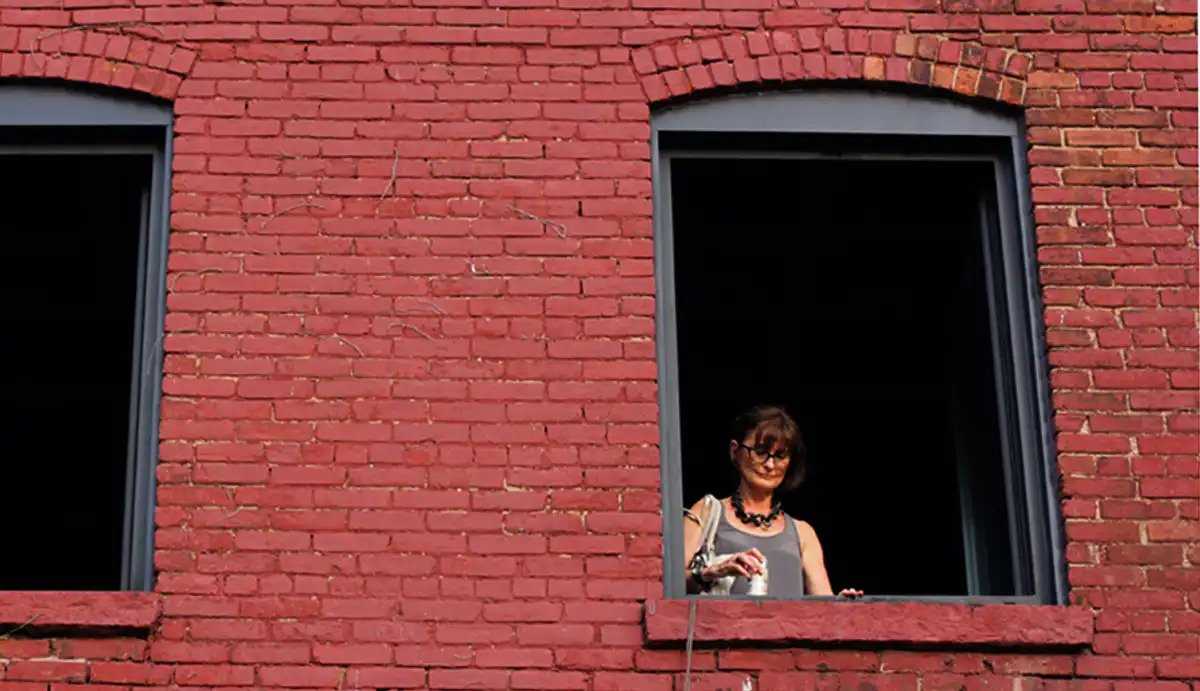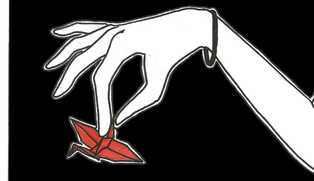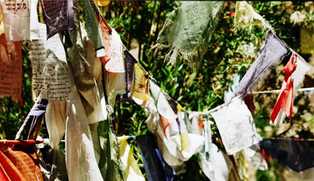As Black Lives Matter has continued to mobilize against police brutality and racist vigilantes in the United States this year, the theme of how, exactly, white people should participate in the fight against racism has once again risen to the fore. The rise of social justice spaces that emphasize the centering of those most affected by an issue, and sometimes the exclusion of those who are not (or less so), has underlined this question. As such Malcolm X’s instructions to white allies have been enjoying renewed popularity. In his autobiography, as told to Alex Haley, he recalled how after every speech, white people would throng around him asking, “What can a sincere white person do?” He responded that white people spent too much time “hovering” around black organizations, rather than confronting their fellow white people:
The Negroes aren’t the racists. Where the really sincere white people have got to do their “proving” of themselves is not among the black victims, but out on the battle lines of where America’s racism really is — and that’s in their own home communities; America’s racism is among their fellow whites. That’s where sincere whites who really mean to accomplish something have got to work…And in our mutual sincerity, we might be able to show a road to the salvation of America’s very soul.
The analysis is sound. “The Negroes aren’t the racists”—or rather, as today’s social justice activists might clarify, black people don’t have institutional, systemic power backing up whatever stray prejudices they might hold. That privilege is accorded to white people. Therefore, those sincere white people who want to end racism are most effective if they go straight to the source, and essentially convert their racial fellows to the cause. This seems straightforward enough until you get to the strategic questions of which whites to organize and towards what goal(s). Ending racism—redeeming America, if you’ll have it Malcolm’s way—is of course the ultimate goal; but in order to do that, you have to identify the root of racism, and target that. Is it a psychological phenomenon? Cultural? Political? Economic? What about that qualifier—power—today’s activists use to distinguish “racism” from “prejudice”? If that is the difference between a black person using a slur and a white person doing it, where does that power come from? What is its root? Power, of course, is the property of the organizers of society. It is the property of those with the means to shape society to their personal goals—and everyone else more or less just deals with the consequences. When you look to see who has power and who lacks it, you can see that there are different classes of white people. Some of them are the organizers of society: they provide the materials and set the agenda. Others are more like managers; they don’t own the joint, but they’re trusted by the owners, they make tons of important decisions, and they benefit quite a lot from the way of things. Still others, and this is the great majority, are just living in the thing the organizers built and the managers manage. They get perks here and there, to keep them motivated and appeased, but they know that all this was decided before them and will be more or less the same after them, and that most of the time it seems smarter to go along with it than try to act up. In times of crisis, they are foot soldiers; the ones who do the dirty work. So which white people do we start with? Who to convert first? If we’re faithful to Malcolm X, it seems we start with whichever ones are around. The ones in the listeners’ “home communities”. The listener, then, becomes important. To make a crass generalization, the white listener these days, one versed enough in social justice language to care about Malcolm X and appreciate the thrust of his argument, is likely college-educated and middle-class. A few of them are from the lower powerless classes, though they are probably on their way up; the rest have parents that range from lower managers to a couple of real life world-organizers—especially in places like Harvard, Brown, and Oxford where wealth collides with consciousness-shifting doses of critical knowledge. Certainly these middle and upper classes have shifted race relations before, and for the better. Perhaps the most notable example is that of white abolitionists before the American Civil War, who successfully made the end of slavery an urgent moral task to the majority white Northern population. The moral urgency of this message created a bloc within Lincoln’s party that could not be ignored—as Civil War historian Eric Foner puts it, no politician will kick out their own base—helping to make slavery the central stake of the War. Yet, conversely, many of the possibilities opened up by abolition—ever heard of forty acres and a mule?—were bulldozed because of an inability to organize the poor whites of the South against the planter class and the limits of what the Northern bourgeoisie were willing to fight (and vote) for (Reconstruction was hard, guys, and this redistributionist stuff was hitting a little too close to home, where immigrant factory laborers were already starting to pick up dangerous ideas.) The middle and upper classes of whites are useful, in strategic coalitions, for creating (and funding!) moral caucuses that push through key reforms. But there is always a limit. And the sad reality is that it is the organizers and managers who have always had the time and resources to be more moral individuals within this screwed-up system. In the scope of people with money who more or less control things, Donald Trump is an aberration; the rest are worldly, tolerant, and listen to their PR consultants (less so their HR consultants, depending on how strong your country’s labor laws are). That doesn’t mean they will give up what they view as theirs. Which is to say if you want to end slavery and get every African American forty acres and a mule, whatever the contemporary equivalent of that is, those “conscious” and “aware” white people will have to organize poor whites. They will have to figure out what it is that will cause them to take people of color’s causes as their own, and show the world-organizers that their foot soldiers might be ready to turn on them and storm their Winter Palace. Now, the middle-class (and up) whites brave enough to take this to heart and seek out poor whites in their homes and work places will likely find that whatever they thought they knew about these people is wrong, or only one small part of the story. They will find that despite having four to six to eight years of education on them, they are vastly less versed in the things poor white people know and take for granted, that they are the outsider, and that they are not necessarily trusted. They may be surprised to find that many of these people interact daily with people of color and share much, culturally, with them; this is because the low-wage jobs open to them are dramatically less homogenous spaces than the universities and accredited jobs in which the middle-class white is immersed. Their racism, then, is more uncomfortably intimate: rooted not in the privileged looking down, but in the powerless scanning their visible competition, casting about for a scapegoat. The sincere white’s objective lies in that scrambling, fearful impulse; in naming it, finding its root, and abolishing it. Its root, quite obviously, is the great tangled lack present each day in the lives of the powerless: of security; of respect, and a sense of being listened to; of inclusion, in the material and symbolic claims of their country; of options. Addressing that lack means organizing for collective material gains, in the service of a deeper struggle for meaningful democracy in every part of life. The sincere white will have to actually believe in that objective, because if they don’t, the people they advocate for and alongside will not either. And they will have to be prepared for the inevitability of clever, and sometimes brutal, opposition from the world-organizers and managers that either re-assimilate those powerless white people in to perverse bonds of racial fellowship or unsentimentally break those bonds in awing displays of repression. Both options have the power to reverse any gains; often they are used side-by-side. The consequence is usually a metastasized, reactionary far Right, along the lines of Donald Trump’s supporters, Golden Dawn in Greece, Jobbik in Hungary, or the National Front in France…examples abound. That is part of the reason why, counter to the logic of separate organizing spaces, white people will need to be organizing within coalitions that include people of color, working towards similar (though not necessarily identical) goals. In this way they will struggle with POC not in resentful competition but in solidarity; they will have their internalized racism challenged; and an institutional memory of white people and POC standing together will be built. Only these experiences can combat the false identification between powerless white people and their communities’ managers and owners. One example of where such a coalition could be built is in the American public schools. The growth of a neoliberal school system is linked to the growing impossibility of middle- and lower-class people to afford private schools. Forced back into the public schools, downwardly mobile whites buy into charters—educational “experiments,” birthed from the destruction following Hurricane Katrina in Louisiana, which use public monies without public accountability, smashing teachers’ unions and forcing parents and students to compete for seats—and other schemes that seem to offer them a special place in the system. Yet such schemes undermine public education as a whole, and the prize-horse schools touted as the future will no doubt be abandoned and ignored once they are done serving the political turf wars of their cheerleaders. They are bound to resegregate already stratified districts, erode the quality and purpose of public education, and withdraw democracy from the educational space. The public school question is one of those crises in which powerless whites can either act as foot soldiers for the powerful, or be won over to a fight that is more deeply in their interests. In fact, more broadly civic institutions are perfect locales for engineering that volte face: hospitals, transportation, parks, etc. This is because they are institutions that can be conceptualized as the inheritance of every single subject in a democracy. As for the police, militant workplace-based struggle is one of the few situations in which white people will have to face off with cops, and begin to understand how they do not serve society. At the end of the day being roughed up and arrested on a picket line is a more convincing demonstration of where the police’s loyalties really lie than all the statistics on stop n’ frisk in the world. All that is to say that Malcolm X is prophetically correct and fatally vague at the same time. It’s true that most sincere, aware whites have spent far too much time simply hovering around the meetings, marches, and critiques of people of color. Yet educating homogenous classes of whites can have unexpectedly pernicious outcomes, as illustrated by Corey Robin in a recent Salon piece, where he points out that “Elites hold ‘conversations’ about race, while resegregating our schools”:
Sometimes, our self-deception can be downright funny. Two weekends ago, the New York Times profiled a group of fancy private schools in New York City where wealthy, white and privileged students learn that they are…wealthy, white and privileged. There’s even an annual “White Privilege Conference,” which is being held this year at Dalton School (tuition: $41,350). More and more private schools, according to the Times, “select students to attend” that conference. These students are so select (and these schools so selective) that they have to be selected to attend a conference on their selectedness.You’d think that if the parents and teachers of these masters of the universe were truly concerned about racial and class privilege they’d simply abolish private schools.
Robin drives home that private school leaders “want a conversation, not a confrontation, about privilege.” That is because in conversations, the stakes are less clear, and positions can be easily changed or concealed. In a confrontation, one must inevitably take sides, and the choice one makes has measurable impact: it could require sacrifice, and the outcome could change one’s way of life forever. That is exactly why sincere whites must choose the path of confrontation; because the price of the privileged to feel good about themselves should not be the suppression of millions of people, and of a more just way of doing things. This is exactly what we’ve seen, in flashes, with Black Lives Matter. When the residents of Ferguson, Missouri, chose confrontation, the elites were forced to make a choice, and to take action. Their choice was to roll out the tanks, and the machine guns, and the curfews. This clarified their position; it also required them to cede much moral and spiritual legitimacy, emboldening activists and marking the lines of battle. Moments like those help a movement, and its participants, mature politically and advance their moral authority. From the workplace, to schools, to military recruiting centers (many whites with few options are, too, exploited by the West’s war machine), activists should be organizing and agitating among those whites who have something to gain from similar confrontations with elites, in mutual struggle with people of color. This is the only way to combat the racist pathologies of powerless whites; to remove them from the world-organizers’ cynical toolbox; and to realign society, in general, along the lines of justice and dignity.




